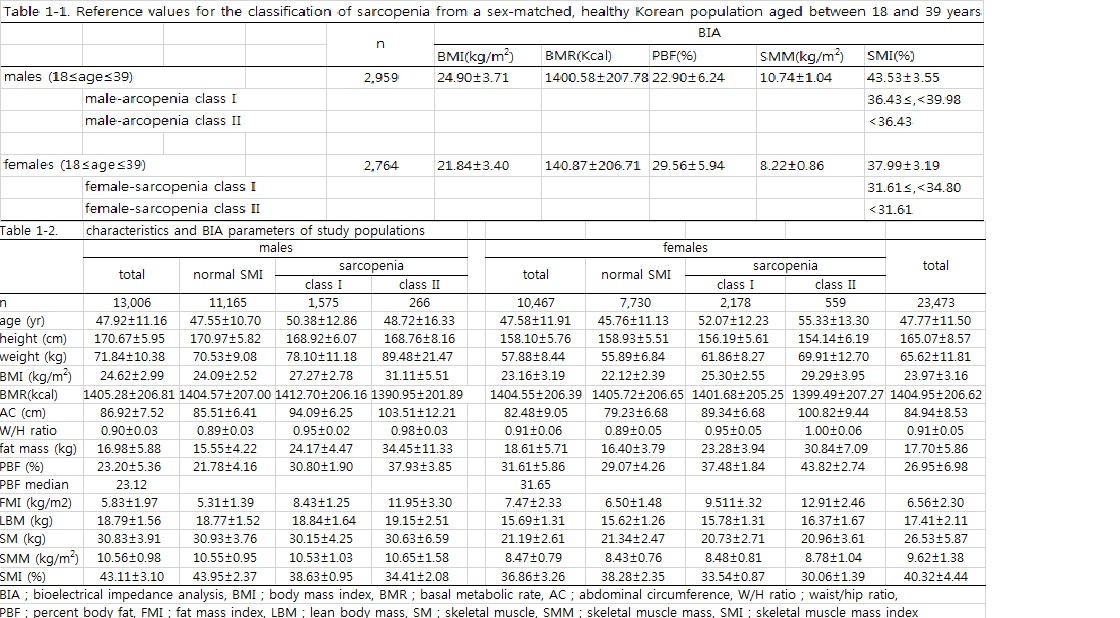Session Information
Session Type: Abstract Submissions (ACR)
Background/Purpose
This study was conducted in order to analyze the effects of sarcopenia and sarcopenic obesity on age-related OA of the knee in a Korean population.
Methods .
All the subjects who visited Yeungnam University Hospital Health Promotion Center between 2008 and 2012 in order to undergo a routine medical examination, including BIA, were enrolled. BMR was calculated using the Cunningham equation, BMI as weight/height2 (kg/m2), SMI as ASM/body mass•100 (%), and PBF as FM/body mass•100 (%). The body components were evaluated by BIA using InBody 720 (Biospace, Seoul, Korea). A total of 522 knees with antero-posterior X-rays from 381 subjects in the population were enrolled in this study. The presence and severity of bony changes for OA were measured and graded twice according to the Kellgren-Lawrence (K/L) grade.
Results
The mean and SD of SMI, BMI and PBF in healthy subjects aged 18 to 39 (total of 5,723 subjects; 2,959 males, 2,764 females) are shown at Table 1-1. Table 1-2 revealed characteristics and BIA parameters of this study population. Negative correlation was observed between SMI and age (r=-0.157, p<0.01), which was more prominent in females (r=-0.313, p<0.01) than in males (r=-0.164, p<0.001) (Table 2). Members of the population aged over 50 showed a significant decrease of SMI (r=-0.166, b=-0.112, p<0.01). The population over 50 years of age showed a significant increase of PBF as compared with that of the population under 50 (r=0.117, b =0.125, p<0.01).
A cross-tab analysis was done according to sarcopenia classification and body composition by PBF in the aspect of K/L grades (Table 3-1). Knees with sarcopenia class I and class II, and obesity showed a trend toward the higher K/L grade in the higher sarcopenia class and sarcopenic obesity (p<0.01). Results of logistic regression analysis between SMI and K/L grade showed a significantly high incidence of a higher K/L grade in subjects with a lower SMI, and significantly high incidence of a lower K/L grade was observed in those with a higher SMI (p<0.01) (Table 3-2).
Conclusion
This study provides evidence that sarcopenia and sarcopenic obesity are correlated with development of and progression to severe OA. Thus, the results of this study may indicate interactive correlation of SMI and PBF as age-related alteration of body composition with age related OA
Disclosure:
H. Kim,
None;
M. Kim,
None;
C. K. Lee,
None;
Y. H. Hong,
None.
« Back to 2014 ACR/ARHP Annual Meeting
ACR Meeting Abstracts - https://acrabstracts.org/abstract/an-analysis-of-age-related-loss-of-skeletal-muscle-mass-and-its-significance-on-osteoarthritis-in-a-korean-population/



